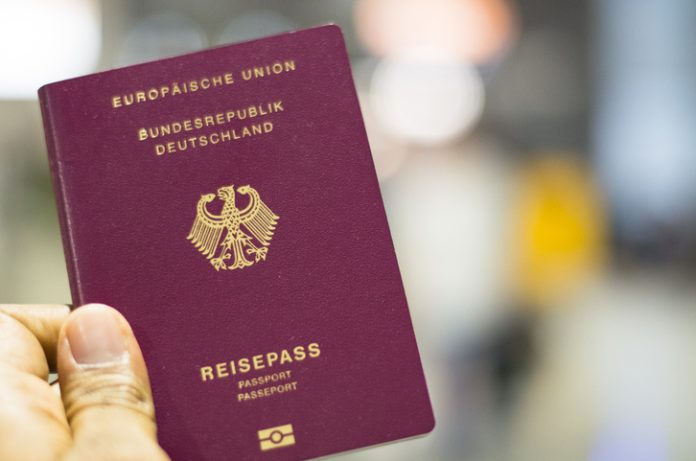The recent modification in German legislation has opened doors for potentially hundreds of thousands of individuals whose grandparents were victims during the Holocaust. They can now actively seek German citizenship. This piece delves into this groundbreaking shift in legislation and how Germany’s stance has evolved concerning the countless victims affected by the Nazi party’s horrifying reign.
Who can assist with immigration and obtaining this new German citizenship?
The law firm of Decker, Pex, Levi, Rosenberg., with locations in both Jerusalem and Tel Aviv, specializes in immigration issues and the process of obtaining German citizenship under the amended law. The firm boasts an experienced team comprising members who are proficient in German and well-versed in the intricacies of German legislation. Moreover, they offer comprehensive services, including translating documents into German and ensuring all related notary needs are efficiently handled.
Why is June 2021 significant for those with German ancestry?
June 2021 marked a significant turn of events for numerous people of Jewish descent who have ancestral ties to individuals residing in Germany during the rise of the Nazi party. This pivotal moment followed a two-year legislative journey in the German parliament, culminating in the introduction of innovative and transformative guidelines. These new measures pave the way for many grandchildren to effortlessly secure German citizenship. The initiative is part of Germany’s commitment to addressing and rectifying the egregious wrongs imposed on German Jews in the 1930s and 40s, particularly after the imposition of the Nuremberg Laws.
Have descendants of Holocaust survivors always found it challenging to obtain German citizenship?
Indeed, for a considerable period, descendants of Holocaust survivors faced significant barriers in their pursuit of German citizenship. Multiple determinative factors often stood in their way, making citizenship an elusive dream for many. Prior to the legislative changes in June of the previous year, a plethora of restrictions thwarted the aspirations of many hoping to attain citizenship. Can I get a German passport if my grandparents were born in Germany? With these new changes, the answer is now increasingly affirmative for many descendants.
What were the past obstacles in obtaining German citizenship for descendants of Holocaust survivors?
A significant barrier for many descendants, especially those of female Holocaust survivors, was a long-standing gender-based restriction. This rule permitted only the descendants of male German citizens to pursue a German passport, leaving a vast number of grandchildren sidelined.
What changes have been made in terms of gender and ancestry?
In today’s scenario, descendants spanning from children to great-grandchildren, irrespective of gender, can legitimately submit their applications with one primary condition: their ancestors must have resided in Germany between 1933 and 1945. Interestingly, the law no longer mandates that those residing in Germany held official German citizenship during this period. This means that even temporary residents or those whose citizenship was nullified due to their Jewish identity or gender (as previously mentioned) are considered eligible.
Have there been any modifications in the naturalization process for descendants of Holocaust survivors?
Absolutely. Today’s revamped procedures depict a substantial shift in policy. Grandchildren desiring German citizenship are relieved from various requirements, such as undertaking a language proficiency test at the German embassy, living in Germany for a stipulated duration, or renouncing their existing citizenship. The crux of the updated legislation hinges on demonstrating historical ties to Germany, as opposed to a current association typically demanded in standard naturalization routines. This is a monumental distinction, especially when the ancestor in question has a connection to a Holocaust survivor.
Who else is encompassed in this new eligibility circle?
The spectrum of eligibility has expanded considerably. It envelops those who, due to marital dynamics involving a German-origin mother and a non-German father, couldn’t claim German citizenship at birth. This also pertains to situations where the mother’s citizenship was annulled prior to the child’s birth due to her marital choices. Additionally, individuals born outside wedlock (until 1.7.1993) with a German ancestry father and a non-German mother are also now considered. It’s pivotal to note that the present-day restrictions are not applicable to Jewish individuals or their descendants who lived in Germany during the stipulated timeframe. This approach starkly contrasts the cumbersome processes faced by candidates without direct ties to Nazi Germany.
How Can I Get a German Passport if My Grandparents Were Born in Germany and Obtain Support in the Process?
If you want to procure a German passport for descendants or simply wish to understand the process better, contact experienced immigration attorneys. Their expertise ensures a seamless and efficient process. For any further inquiries or clarifications, don’t hesitate to get in touch using the contact details provided. Our seasoned professionals stand ready to address any questions you might have.




































